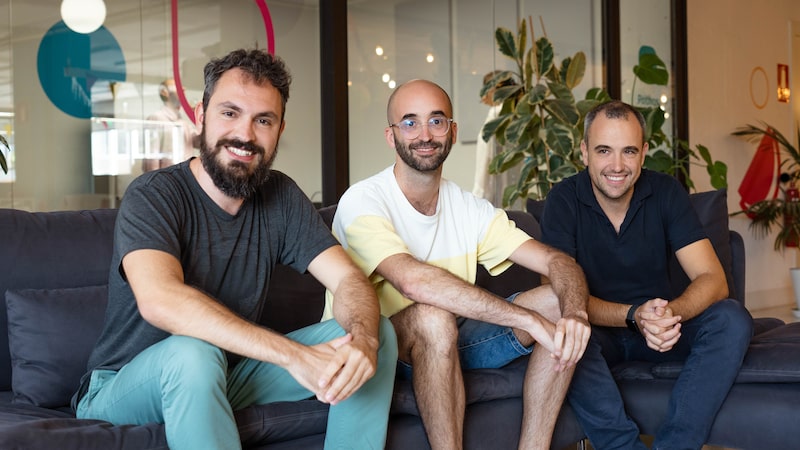Barcelona, Spain — Digitization by companies in Latin America has created an environment for Spanish startups to direct their investments to the region, and one of them is Barcelona-based Factorial, which recently raised $120 million for its human resources management software development and has just joined the club of a dozen Spanish unicorns with a valuation of more than $1 billion.
Now, the company aims to triple its turnover in 2023 - including that of its branches in Brazil and Mexico - which would take its revenues to 90 million euros.
Factorial has gone from its launch in 2016 by its three partners to managing a workforce of 800 employees and more than 8,000 clients in nine countries. It has opened offices in Brazil and Mexico and its latest expansionist maneuver, just recently, was to open an operation in Miami.
Latin America is where the company’s focus is, said Jordi Romero, CEO and co-founder of Factorial (the other co-founders are Bernat Farrero and Pau Ramon), in an interview with Bloomberg Línea.
He said that Brazil is seen as the goldmine, and next year the company will receive investments of between $5 million and $10 million.
With only one year of operation, Brazil, where Factorial has 80 employees and a sharp increase in headcount is expected, has come to produce 10% of all the company’s revenues, behind France, Spain and Mexico.
“This is the global value. But in terms of generating new customers and revenues, Brazil is now first-placed,” said Romero. By 2023, Brazil is expected to account for 20% of the entire group’s revenue.
“Brazil, Spain and France are the most difficult countries we work with in terms of human resources due to their complex legislation, although the greater the complexity, the more prosperous the market tends to be,” said the executive, explaining that the platform he develops is the same for each country, although there are adaptations.
Mexico is also a key player in Factorial’s plans to triple its global turnover, Romero explained. In that country, the Spanish startup has more than 70 employees, a figure that could double in the coming year.
For the time being, the company is ruling out setting up in other Latin American markets, as Mexico acts as a bridge to the other Spanish-speaking countries in the region.
“For the moment we are focusing on where we are, there is still a long way to go and a lot to explore,” Romero said, adding that, globally, there are 10 million potential Factorial clients.
Trends in Latin America
Factorial’s CEO has identified two trends that make Latin America a hotbed of opportunity. The first is that a vigorous digitization process is under way in the region, making it a much more promising market than Europe for software companies. “The acceleration in digitization in Brazil and Mexico is so drastic and radical,” he says.
“At the moment, Europe leads in revenue, but the trend is for Latin America to pull ahead.”
Another turning point is that both legislation and the mindset of employers in these countries have evolved in the sense that “HR professionals are also those who find talent, who measure performance and productivity,” he says.
A challenging environment
The human resources management software developer is not yet a profitable company, but it is growing by leaps and bounds. According to Romero, since 2019 revenue has experienced annual growth of approximately 200%. From 2021 to 2022, its turnover rose from $8 million to almost $30 million. Despite the current market situation, with the funding stream shrinking in the face of the challenging global economic scenario, Factorial managed to raise 80 million through Tiger Global in 2021 and, last October, another $120 million in a deal led by Atomico.
“The situation at the financing level is dramatic, venture capitalists are afraid and confused, that shows in the level of detail and rigor when presenting the documents for the capital round. It was not the most difficult fundraising, but it was undoubtedly the most laborious,” said Romero.
Latin America on the radar
Factorial is not the only Spanish startup to take a closer look at the region. Spanish ride-hailing platform Cabify announced investments of more than $300 million in mobility for Latin America over the next two years. Cobee, a Spanish employee benefits startup, raised $41.4 million at the end of November to finance its arrival in the region - starting with Mexico.
Spanish edtech Odilo announced in June the hiring of dozens of people in Mexico, following a $64 million round. Reental, a cryptocurrency real estate investment fintech, appointed a new executive to accelerate expansion beyond Iberian borders. And Mexican-Spanish startup Pulpo, focused on smart fleet management, raised $8 million in October.
-- With additional reporting by Yanin Alfaro

